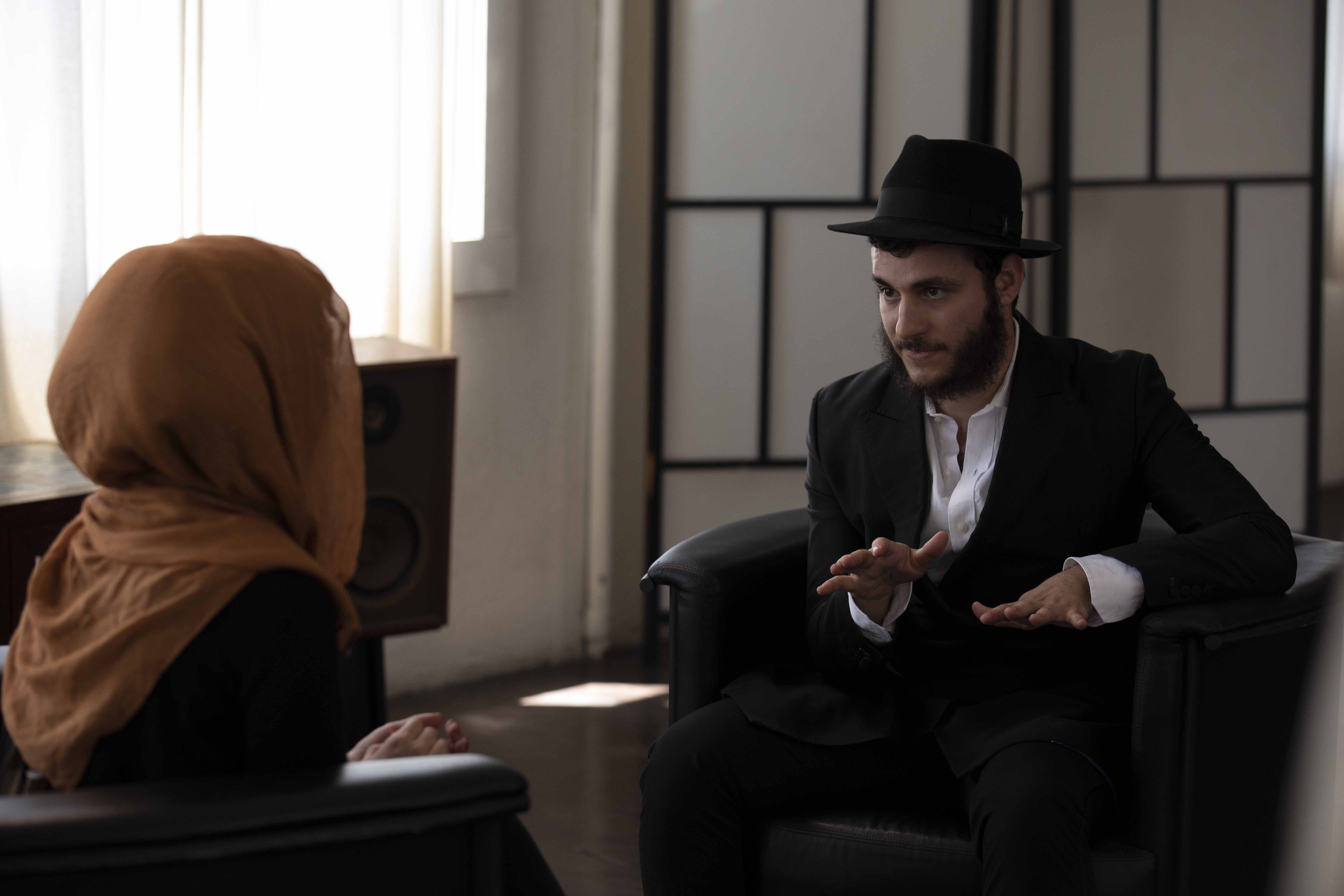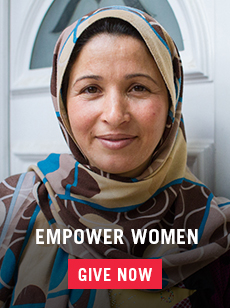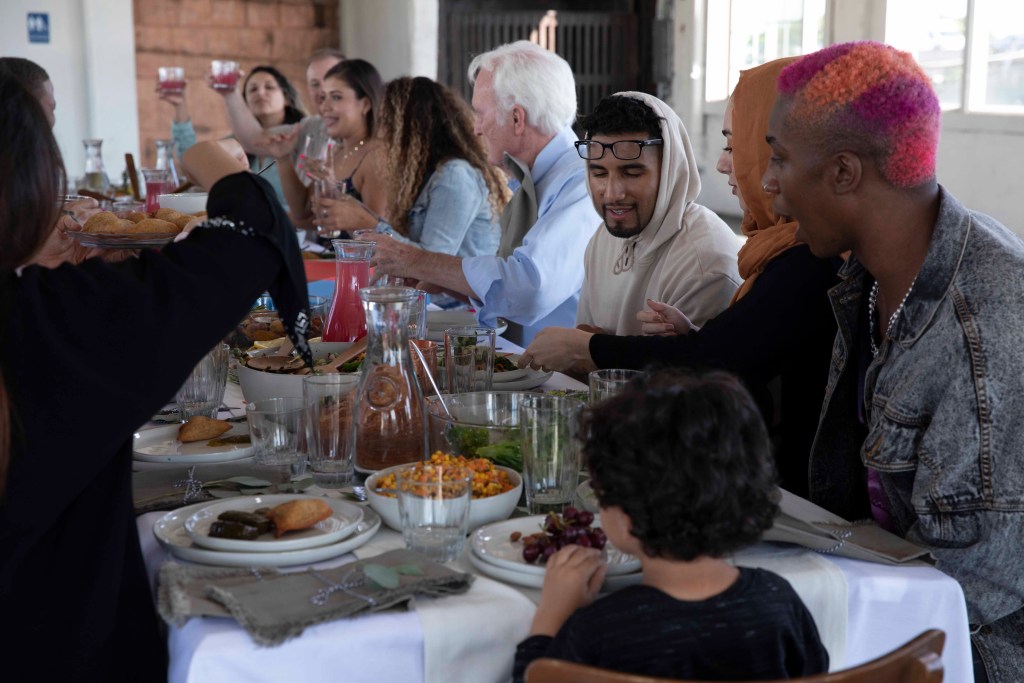We are more divided than ever before.
We live in a more connected world than at any other point in history. But we seem to be more divided than ever with so many polarizing debates, people, and situations.
As we become more connected with one another, we’re introduced to new cultures, ideas, and philosophies. Some of these we agree with. Others, we don’t.
What do we do when we don’t agree with others in our circle, our community, our world? Do we filter out those who think, act, and believe differently? Or do we lean in?
Does Our Diverse Population Breed Hate?
In 2018, violent crime fueled by hate reached a 16-year high in the US. These crimes were fueled by hate for:
- Immigration
- Religion and culture
- Sexual orientation
- Gender
- Race and ethnicity
We’re divided as a society because we’re not all the same. Sameness is easy. Difference creates questions and tension. But what if we embraced this diversity and worked to understand and learn from each other rather than disagree, blame, and persecute those who don’t agree with us.
Related: Why We’re So Divided And What You Can Do About It
Why Is Diversity Important?
We are diverse. Whether we like it or not.
No two people are alike because every person has their own unique perspective, experiences, and opinions.
Our differences can either fuel hate and conflict or ignite love, curiosity, and opportunity.
What Is Diversity?
Traditionally, diversity has focused on the idea of creating tolerance between different cultures.
As our world expands and becomes more connected, the focus has shifted toward how diversity can enrich human learning and experience, also called, “unity in diversity.”
Numerous political bodies have adopted this powerful phrase over the last two decades, including the European Union who embraced it as an official motto. It talks about bringing unfamiliar groups with differing values together so they can learn from one another.
There are many aspects of diversity that play into unity in diversity, including:
- Age
- Race and Ethnicity
- Gender
- Sexual Orientation
- Religion
- Disability
- Personality
- Socioeconomic Status
- Education Level
But these very same things that can unite us, also divide so much of our population. It leads to hate-crime, political fallout, and even war.
We will never have a world where everyone agrees with everyone else on absolutely everything.
We don’t want that anyway. Our differences are what makes our world so beautiful. A world of sameness is boring, predictable, and stagnant. Our differences are what push us to grow, change, think, learn, adapt, and remain curious.
Our differences make us better.
The Main Types of Diversity That Shape Our Environment
We’re more aware of the world around us than any other generation. In a fraction of a second, we can connect with someone on the other side of the globe. That person may speak a different language, abide by a different culture, and believe in a different god.
This is the world we live in. When we connect with people online and in the real world, this is the diverse ecosystem we’re a part of. It shapes our environment, and therefore the way we choose to act and live.
There are a few main types of diversity that shape our world.
Cultural Diversity
Cultural diversity is where a community many different diverse aspects, such as:
- Language
- Nationality
- Religion
- Sexual orientation
A rich and various set of beliefs creates a community that can complement one another and helps those inside see life in a new light.
Consider the role food plays in the US, and how some of the most popular dishes wouldn’t exist if it wasn’t for the different perspectives of immigrants. Pizza and pasta, chile con queso, falafel, and Pad Thai… America’s diverse cultures came together to define how we eat.
In time, these dishes have taken on a life of their own as people with ancestors from across the globe add their own ingredients, spices, and styles to each dish.
Societal Diversity
Societal diversity takes into account aspects like:
- Socioeconomic status
- Gender
- Age
- Educational background and experience
- Disability
- Personality
Different generations bring unique insights, as do people with different upbringings regarding education and societal status.
Think about today’s diversity in the workplace, and how four generations often come together:
- Baby boomers: 1946-1964, ages 55-73
- Generation X: 1965-1983, ages 36-54
- Generation Y/Millennials: 1984-1996, ages 23-35
- Generation Z/Gen 2020: 1997-mid-2000s, ages mid-teens-22
Each generation offers a unique insight into work ethic, technology, life experience, and problem-solving. Steve Jobs, a Baby Boomer, couldn’t have come up with the iPod without Jonny Ive, part of Generation X. Yet the products they made were aimed at and sold by millennials in their tech-savvy stores.
Racial Diversity
A community with a rich racial and ethnic diversity is one formed by differing (and often contrasting) cultures, beliefs, and heritage. It’s often a platform for hate and conflict, but only because of misunderstanding and a lack of empathy.
These same issues can create diverse learning and opportunity, bringing together groups that would previously be at war.
A population with a diverse set of races, beliefs, and heritage can help create new ones. Each time it does, new lessons, languages, and traditions are passed on.

Religious Diversity
Like racial diversity, religious diversity has fueled great conflict and war over the years.
- The Israeli–Palestinian conflict
- The Yugoslav Wars of the 1990s, fueled by its Orthodox, Catholic and Muslim populations
- The more recent Sudanese Civil Wars, a conflict between its Muslim-led government and its non-Muslim people
But just like racial diversity, these very issues can transform into a platform of opportunity.
If we consider today’s modern workplace, it’s often formed of people with different beliefs. A single room with those who follow the Catholic Church, Judaism, Islam, Buddism and more. In a disagreement over many aspects of life, but working together in alignment all the same.
What Does Diversity Look Like in The Workplace?

Can the workplace cultures we create have an impact on huge global issues like war, famine, and the ever-increasing refugee crises we see in places like Syria and Afghanistan?
In a way, yes. Our diverse cultures, beliefs and social statuses so often come together in the workplace. Regardless of whether you agree or not, you must work together as a team.
As such, you learn, develop greater understanding, and may even gain a new appreciation for those who are different.
It’s not just diversity that plays a role here, but inclusion, too.
Where diversity brings differing people together, inclusion focuses on the practices that create equality.
In other words, diversity is the mix and inclusion is getting the mix to work well together.
A diverse workplace committed to inclusion not only fuels understanding and appreciation but productivity and success. Research suggests that a workplace with a healthy balance of men and women, for instance, are 21% more likely to outperform their competitors. And a business with a diverse mix of ethnicities is 33% more likely to outperform competitors.
More striking, teams with a diverse range of gender, age, and ethnicity are said to make better decisions up to 87% of the time.
A diverse workplace makes sense for business owners and managers. Yet the real benefits can be seen outside of the workplace, as these workers return home to their families and communities.
Why is Diversity Important in the Workplace?
Here are some of the biggest benefits of a diverse workplace:
1. Productivity Increases
When you bring together people with various backgrounds and different life experiences, you open yourself up to new ideas, perspectives, and problem-solving. Different generations have gone through differing situations. They were taught different techniques at school and used differing tools.
This forces people to question what they know, listen to the other person, and find a new way to solve an old problem. All this forms a more productive and efficient workplace, which you could never achieve if everyone thought and acted the same way.
2. You Develop World Citizens
We live in a globalized world. With a swipe of your finger, you can connect with someone thousands of miles away. We are all world citizens, yet it’s hard to truly appreciate this if you’re only ever around those who speak the same language, experience the same culture, and share the same beliefs as you.
When you’re in a diverse workplace, you’re introduced to a new perspective. It can both humble and inspire you. This not only helps you become a better worker but a better person. And as you take these lessons home to your family, it changes how you teach your own children to become fellow world citizens.
3. Greater Perspective
You only ever know what you know. Once you hear another person’s experience and perspective, it helps shed light on a situation. You question what you know. It helps you form greater empathy.
When you compare your own struggles, values, and beliefs to someone else’s, you can begin to comprehend who you are as a person and start to understand and appreciate their unique humanity, too.
You only ever know what you know… being part of a diverse workplace helps you know more.
4. Growing Acceptance
You may never agree with another person’s set of beliefs or values, but to agree with them isn’t the point.
What matters is that you respect their views and seek to understand why they might believe or act the way they do.
This is what a diverse workplace promotes. In a professional setting like this, you have to show respect.
It minimizes hate and persecution.
It allows you to get along with someone else, even if you don’t see eye-to-eye.
5. Diminishing Discrimination
Discrimination is what fuels so much of the conflict we see in the world.
A diverse workplace helps eradicate this discrimination.
As the ancient Buddhist proverb says, “how you do anything is how you do everything.” Tolerance and respect at work lead to tolerance and respect at home. As such, being part of a diverse workplace could be the greatest step any of us can take to finally eradicate war for good.

Developing Diversity Skills for a More Inclusive World
Whatever your role in your workplace is—leader, manager, supporting role——there are certain things you can do to help develop a more diverse and inclusive workplace.
- Identify what you want to achieve. Saying it isn’t enough. You need to think clearly about what it means and what it looks like in your business.
- Make it your own. Take inspiration from other businesses, but the most important part of this whole process is that you have to tailor it around you and your workforce.
- Implement it sooner than later. A plan is great, but what’s better is action. Whatever you plan to build, implement it as soon as you can. Don’t wait. The sooner you create an inclusive workplace, the better.
- Involve people. Make it clear why you’re doing this. It’s not just about productivity and better working conditions, but for the greater good of the world we live in.
- Practice this daily. You cannot control everyone else, but you can control the decisions you make. Take an interest in your colleagues. Ask questions. Be part of the conversation. Do all you can to include other people in work that you do.
You already own the skills you need to build and embrace a diverse workplace.
The secret is to be human. To love and have empathy. To take an interest in others.
The Importance of Diversity Goes Beyond The Workplace
Although diversity in the workplace is great, that’s not the most important thing.
We want to stop hate and conflict. To end war.
So much of hate stems from a lack of understanding, empathy, and fear. It becomes us vs them. Creating a diverse workplace is one of the most important steps we can take because it’s the one place millions of people have to enter into each day and work together.
They have no choice but to put their differences aside, to work together, whether they agree or not.
They let their guard down. They build new friendships. They’re open. to a new perspective, one they may never otherwise get at home.
From there, we can dampen the flames of hate, conflict, and war forever.
Division leads to fear. Fear leads to violence.
And violence leads to war.
War leads to unimaginable hurt and pain for so many people around the world—perpetuating the cycle. But it doesn’t have to be this way.


